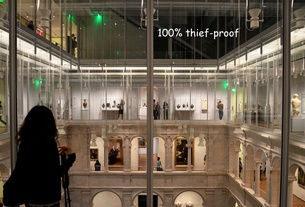Homo Economicus
The Economic Man’s Valentine
The Economic Man was utterly out of gift ideas for his girlfriend, the Economic Woman, for Valentine’s Day.
Better for Bettors
In a country that worships individual freedom and the glamour of Las Vegas, the legal hurdle for online gambling seems easy to cross. However, online gambling has been a murky legal area since its conception in the late nineties. In 2006, after years of failed attempts to regulate online gambling, four Republican senators sneaked the Unlawful Internet Gambling Enforcement Act as an amendment into a totally unrelated law on maritime security, and got it passed on the last day of Congress without a debate. Quietly and swiftly, Congress made this blossoming industry illegal.
Moneyball for Admissions
Baseball scouting has come a long way since Billy Beane’s innovation. Yet, surprisingly, holistic assessment and gut feelings still prevail in college admission. Despite the objective criteria that Starkman was instructed to follow, the admissions process was confusingly subjective. In Starkman’s training sessions, she was told to look for the “bigger picture” of a candidate’s life and that candidates who “help build the class” were more valuable. At times, these criteria seemed purposefully vague to encourage subtle racial discrimination and preference for wealthier students. When she asked why an academically talented Asian student was ranked lowly, her colleague replied: “Oh, you’ll get a lot of them.” The application of such vague criteria was dictated by the discretion of experienced readers. In the “norming sessions,” experienced admissions readers guided the new readers to conform their decisions to a predetermined score. Rather than evaluating a student’s merits with a clearly defined metric, readers were conditioned to rank students based on how they thought other readers, especially more senior ones, would rank them.
Wage Against the Machine
Last August, American fast food workers held strikes in more than 60 cities, demanding a $15/hour “living wage,” which is more than double the $7.25 federal minimum wage. The protest pits fast food workers against big corporations like McDonald’s. Having worked a minimum wage job at McDonald’s before college, I’m on the side of the workers, but I’m afraid I have to put my money on the big corporations. The fight, after all, might no longer be a zero-sum game between corporations and workers. It may be a fight between workers and machines that will ultimately replace them.




